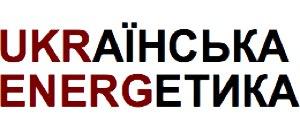International Energy Transparency Index 2020: sector openness test – positive or negative?
Transparency is one of the key prerequisites for effective economic and market development, open competition, fair pricing, and formulation of balanced policy and regulation. Better information openness is also a safeguard against corruption. For this reason, our aim was to develop a tool that will enable us to measure transparency in the sector, conduct a comprehensive analysis, and track progress.
In 2018, a team of DiXi Group experts developed the Energy Transparency Index and for the first time comprehensively assessed the information openness of the sector in Ukraine – the total score at that time was 43 points out of 100 possible. Based on feedback from Ukrainian and foreign experts, we have improved the Index methodology by detailing the assessment criteria, set of categories and indicators. The second assessment, conducted in 2019, showed some progress as transparency in the Ukrainian energy sector increased by 5 points (to 48 points), but was still insufficient.
At the same time, from the very beginning we conceived the Index as a flexible and universal tool that can be used not only for Ukraine but also for a group of countries, such as the Eastern European region, Energy Community member states, countries of Baltic-Black Sea cooperation and in a wider international format. In our view, the international format will provide a much better incentive for national governments to improve transparency, disclose information and data needed by stakeholders to better understand the sector, and to make informed and effective decisions based on data and policy analysis. When the Index evaluates and compares several countries, a competitive spirit immediately emerges that motivates them to be better. This is why in 2020 we for the first time make the assessment for three countries in the region that are members of the Energy Community, namely Ukraine, Moldova and Georgia.
The universality of the Index lies in the fact that the indicators against which transparency of the sector in countries is measured are based on the relevant requirements of EU legislation as well as on the best international disclosure practices. The pilot assessment of the three countries in the region covers 115 indicators that cover electricity and gas markets, as well as cross-sectoral matters. The assessment is carried out by national experts on the basis of an analysis of open data only, primarily the official websites of companies and authorities and the databases administered by them.
More details about the results of the assessment will be provided in the following comment. However, it should be noted that they have made it possible to diagnose gaps and shortcomings in information disclosure, as well as to identify “black boxes”, i.e. indicators for which there is no information at all. All of these issues served to formulate concrete recommendations to responsible authorities and companies to improve the transparency and quality of the information environment in the energy sector.
And while the whole world is experiencing a pandemic, our analytical team, together with analysts from Georgia and Moldova, is conducting a “test” for energy openness. If you want to know how transparent the energy sectors of these countries are, what problems in openness exist and what experts advise to do in order to overcome them and improve the results of transparency in the future, join the presentation “International Energy Transparency Index 2020: sector openness test – positive or negative?”.
The event will take place on December 17, at 11.00 on Zoom platform. To join the event, please register on the link by 17.00 on December 16. A link to the event will be sent to all registered participants by EOD December 16.
The event will be held as part of the project “Energy Transparency Index – a Powerful Tool to Enhance Transparency in the Energy Sector”, which is implemented by DiXi Group together with World Experience for Georgia “WEG” (Georgia) and Community for advocacy and public policies WatchDog.MD (Moldova). The project is supported by the EU-funded regranting programme of the Eastern Partnership Civil Society Forum.
The project benefits from support through the EaP Civil Society Forum Re-granting Scheme (FSTP) and is funded by the European Union as part of its support to civil society in the region. Within its Re-granting Scheme, the Eastern Partnership Civil Society Forum (EaP CSF) supports projects of its members that contribute to achieving the mission and objectives of the Forum.
Grants are available for CSOs from the Eastern Partnership and EU countries. Key areas of support are democracy and human rights, economic integration, environment and energy, contacts between people, social and labour policies.
This publication was produced with the financial support of the European Union. Its contents are the sole responsibility of DIXI Group NGO and do not necessarily reflect the views of the European Union.







